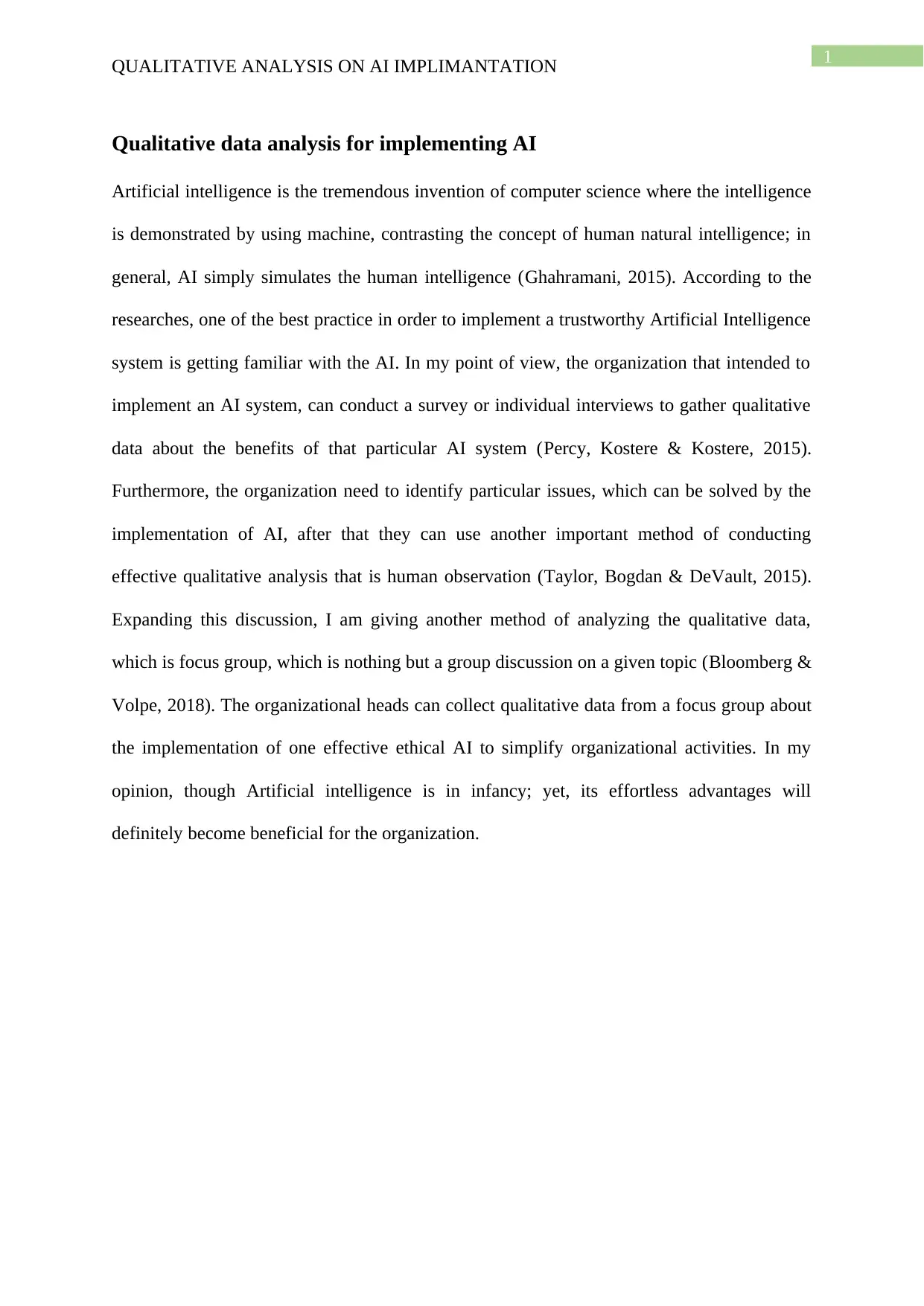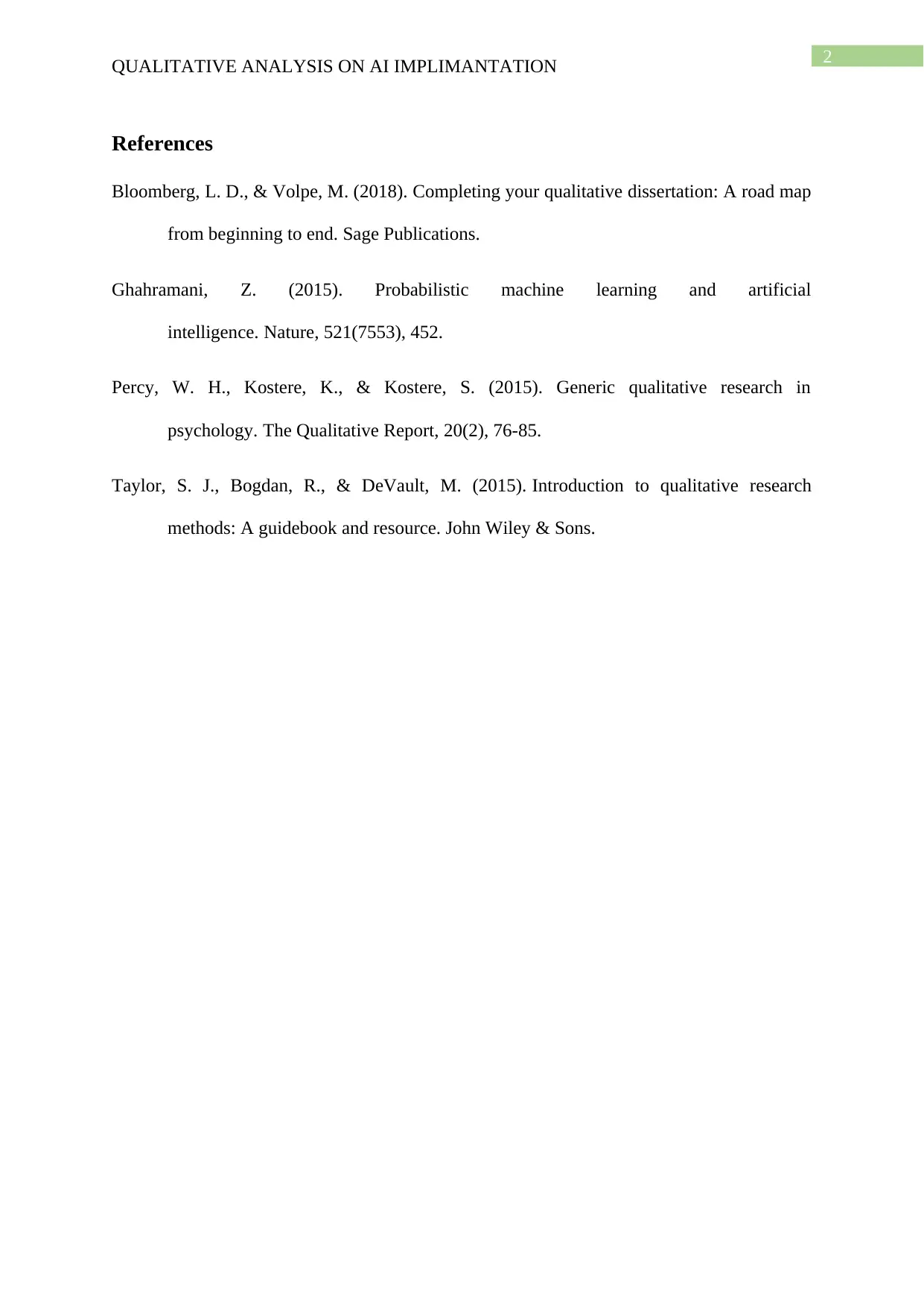Qualitative Analysis of AI Implementation: A Report
VerifiedAdded on 2023/01/16
|3
|408
|23
Report
AI Summary
This report delves into the qualitative analysis of AI implementation, focusing on methods to understand and improve AI systems. It begins by highlighting the importance of understanding AI, particularly in the context of business applications. The report suggests using surveys and individual interviews to collect qualitative data on AI's benefits. It emphasizes the significance of identifying problems that AI can solve and suggests human observation as a key method for qualitative analysis. Furthermore, the report introduces the use of focus groups as a method for gathering qualitative data, especially concerning the ethical aspects of AI implementation. The report concludes by acknowledging the nascent stage of AI while emphasizing its potential benefits for organizations. The report also includes references to relevant sources such as Bloomberg & Volpe (2018), Ghahramani (2015), Percy, Kostere & Kostere (2015), and Taylor, Bogdan & DeVault (2015).
1 out of 3









![[object Object]](/_next/static/media/star-bottom.7253800d.svg)